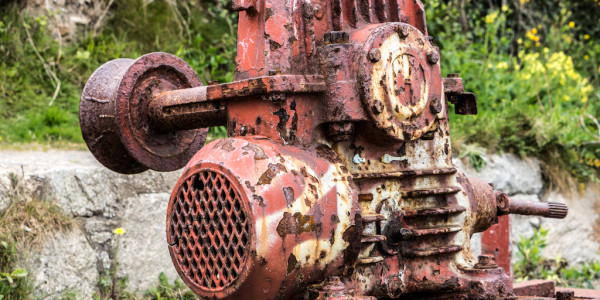There aren’t many inventions that totally get it right the first time. Time, technology, and trial and error usually lead to improvements. From the stone wheels that the Flintstones used, to the wooden wheels on Conestogas, to the performance rubber tires we use today, even something as basic and enduring as the wheel has been improved upon over the years. So it should come as no surprise that something as sophisticated as a motor would be improved upon as time goes by. Motor efficiency is constantly improving, and often, older motors aren’t as energy-efficient as newer ones.
Cost and older motors
Operating with older motors can lead to increased expenses. It requires more energy for older motors to churn out the same amount of output as newer, more efficient motors. But is it worth upgrading to a new motor? Entirely replacing your current system can cost a ton of money upfront, despite being cost-effective further down the road. Then you also have to consider the environmental cost.
Is the savings in energy worth changing to modern motors, considering the environmental effects of putting the old ones into the landfill and using raw materials and energy to make new ones?
Energy consumption
The federal Energy Information Administration recently reported that up to 35% of the nation’s electricity is consumed by factories. IHS claims that almost two-thirds of that electricity is used to run the motors powering the machines. That’s a staggering number, but you have to consider just how many factories there are in the USA. While we see different numbers from different researchers, one estimate is that there are 591,720 factories in the United States.
Each individual factory makes up just a fraction of a percentage of that big 35%. Sure, if every single company in the nation upgraded to newer more efficient motors, that would make a huge difference in the amount of electricity consumed, but there are other things to consider when it comes to environmental costs.
Beyond energy
What if everyone in the world replaced their outdated motors? The amount of material that would have to be consumed to produce those new motors would be enormous. What would we do with all of the old motors? As awful as it is, it’s commonplace for companies to truck big, heavy, outdated machinery to a landfill or dump it in the ocean. That negates the benefits of replacing those motors in the first place!
Replacing old motors with modern motors might seem like a good environmental choice, but it’s not always that simple. There are big costs when it comes to updating motors in a safe and responsible way that might not be practical or affordable. In many instances, keeping your old motors in good working condition can be just as environmentally responsible as swapping them with modern ones.
If your old motors are Indramat servo motors, we’re the guys who can keep them in good working condition. Call us at (479) 422-0390 to get immediate assistance.



